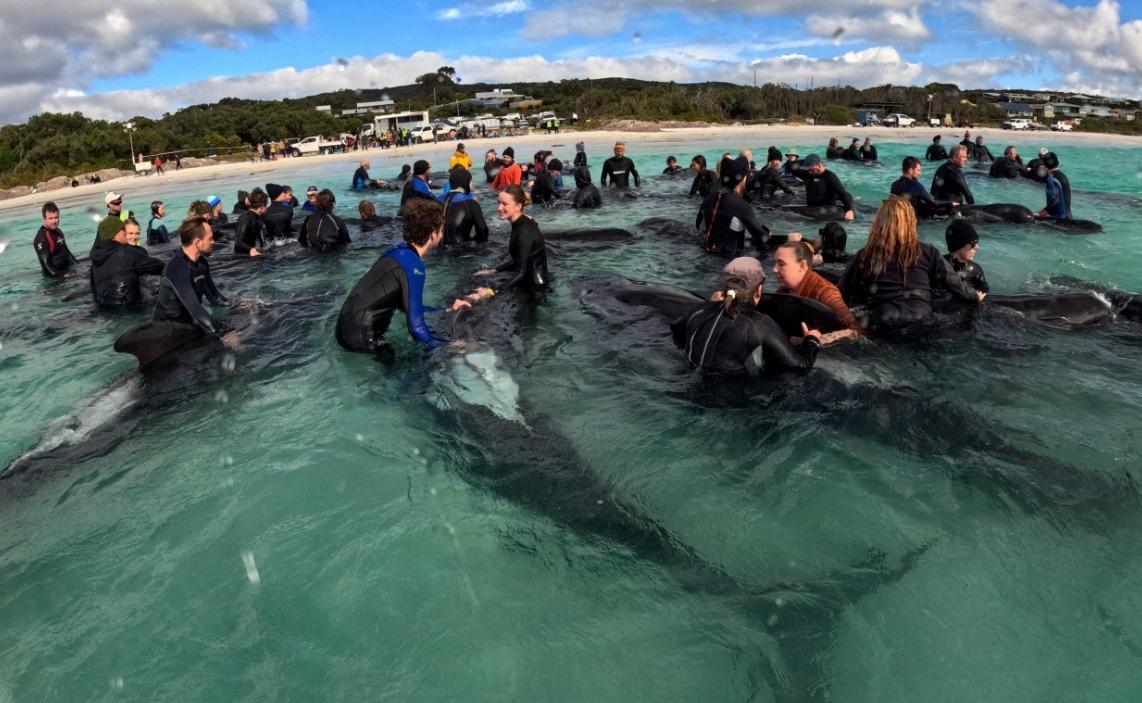
The last of nearly 100 whales that beached on the southwestern Australian coast were euthanized on July 26 after a second day of frantic, but unsuccessful efforts to rescue them, authorities said.
The pod of long-finned pilot whales stranded themselves on July 25 on Cheynes Beach east of the former whaling station of Albany in Western Australia state, south of the capital Perth.
Despite the efforts of 100 wildlife officers and 250 volunteers wearing wetsuits to protect against the Southern Hemisphere winter cold, 52 stranded whales died on the beach.
The remaining 45 were euthanized after efforts to lead them to deeper water failed. The survivors continually returned to the shallows, the Western Australia Parks and Wildlife Service said in a statement late Wednesday.
“Sadly, the decision had to be made to euthanize the remaining whales to avoid prolonging their suffering,” the service said. “It was a difficult decision for all involved, however the welfare of the whales had to take precedence,” it added.
The service thanked the officials and volunteers who helped with the attempt to save the whales. A storm lashed the beach with wind and rain Wednesday afternoon, and two volunteers were treated by paramedics for hypothermia, Australian Broadcasting Corp. reported.
Peter Hartley, a manager of the Department of Biodiversity, Conservation and Attractions who oversaw the response, described the decision to euthanize the survivors as “incredibly hard.”
“Probably one of the hardest decisions of my 34 years of wildlife management. Really, really difficult,” Hartley told reporters in Albany.
“It was a considered and well thought out decision. And you know, we thank the support of the... veterinarians that assisted with the assessments and the advice that they gave me to make that decision,” Hartley added.
Wildlife experts speculated the beaching could be an indicator of stress or illness within the pod, but said the reasons would likely remain a mystery.